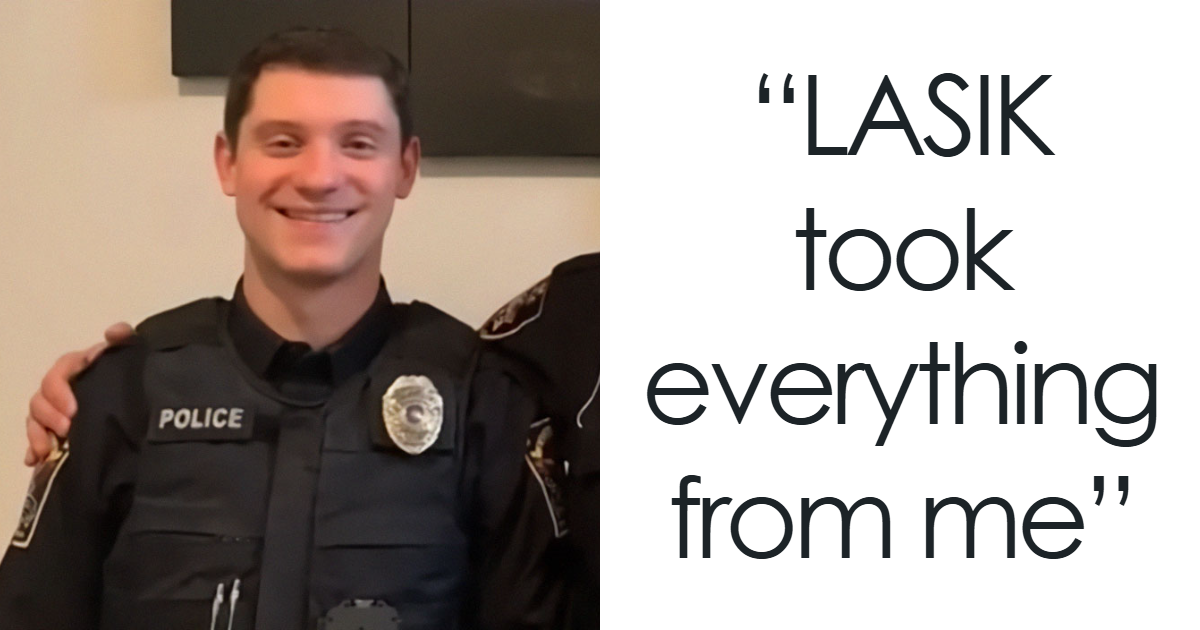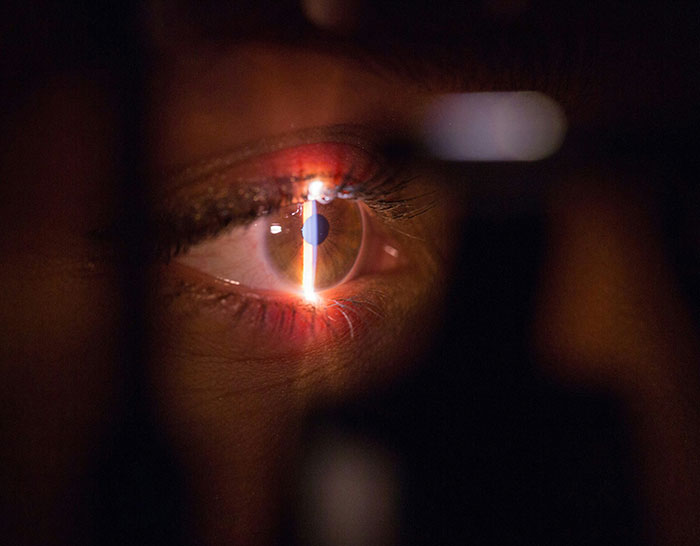Tragic Confession Sparks Unseen LASIK Horror Stories From Others Who Dare to Speak Out
So, here’s a question that might prick your brain a bit: when you go in for a quick LASIK eye surgery — you know, the one that promises crystal-clear vision and a glasses-free life — what happens when the laser pulls a fast one and leaves your eyesight worse than before? For 26-year-old Ryan Kingerski, a former Pennsylvania police officer, that nightmare became all too real. After an elective LASIK procedure that was supposed to be “99.99% effective,” Ryan spent months wrestling with pain, headaches, and blurry vision that just wouldn’t quit. Five painful months later, he made the tragic decision to take his own life, leaving behind a note pointing directly to LASIK as the thief of everything he cherished.
Now, this isn’t the first time we’ve heard such gut-wrenching stories, which begs the question: how safe is one of the most popular elective surgeries in the world? And when the line between a medical fix and a permanent damage blurs, who do we hold accountable? There’s a growing chorus online — survivors, families, even medical experts — all weighing in. Meanwhile, LASIK advocates urge caution, emphasizing that suicide is a tangled web of factors, not just one botched surgery. Still, Ryan’s story cuts deep — a sobering reminder that sometimes the promise of perfect vision can come with unseen shadows.
LEARN MOREIt wasn’t the first botched LASIK operation, and it probably won’t be the last. The internet is stunned after 26-year-old Ryan Kingerski, a former police officer in Pennsylvania, took his own life, seemingly because his LASIK eye surgery did not turn out as planned. His parents say his decision to end his life was directly related to LASIK permanently damaging his eyesight.
- A former police officer in PA ended his life after an unsuccessful LASIK procedure
- The surgery left his eyesight worse than it was before the surgery
- There have been additional cases of people ending their own lives after a botched LASIK surgery
- LASIK lobby releases statement in aftermath of media storm on Ryan’s story
In August of 2024, Ryan chose to have elective LASIK surgery. He was planning on taking a few days off work, but as the days and months dragged on, his eyesight was not getting any better.
Ryan’s parents told KDKA News, a CBS station from Pittsburgh, that their son was having very bad pain in his head. “He had terrible headaches and wasn’t able to focus, and the vision and blurriness and everything else just continued.”
For five months after getting LASIK, Ryan lived with constant pain until he took his life
Image credits: Getty Images/Unsplash (Not the actual photo)
After living with the pain for five months, he couldn’t take it anymore. In January, Ryan ended his life. He left a note for his parents saying, in part, that he “couldn’t take it anymore. LASIK took everything from me.”
Ryan’s parents said that after the procedure, he was full of regret. But before, he was “witty, charming, smart and a lot of fun to be around,” Stefanie Kingerski said.
They say he decided to go ahead with the elective procedure in part because his doctor told him it was 99.99% effective.
“He couldn’t take it anymore,” Ryan’s parents said, explaining that his sight was worse after the surgery
Image credits: CBS Pittsburgh
LASIK.com, a website with information on the procedure and eye doctors in the U.S. who perform the surgery, has addressed the recent media firestorm about the seeming connection between an unsuccessful surgery and someone taking their own life.
In a press release about Ryan, the site called his story “powerful and emotional.”
Image credits: Brands&People/Unsplash (Not the actual photo)
But the release urged the public to “be careful” because “there is a difference between honoring someone’s pain and making sweeping conclusions that aren’t supported by evidence.”
Image credits: Pete Dyer
The release said that when people take their own lives, it’s never “caused by a single factor. It’s the result of an incredibly complex interplay of mental health, biology, environment, life experiences, and sometimes physical suffering.”
“Not only misleading, it’s dangerous”: LASIK.com cautions against linking failed surgery to destructive behavior
Image credits: CBS Pittsburgh
LASIK.com feels that to draw a direct cause-and-effect line between a failed procedure and taking one’s life, without knowing the full context of that person’s medical history, is “not only misleading, but dangerous.”
The release promoted a balanced approach, “not fearmongering or blind defense.” It said that grief “often seeks a cause,” but that it’s important to remember that “sometimes the most painful truths are the most complicated.”
This isn’t the first time someone has taken their own life after having a LASIK surgery that did not work.
In December of 2018, 35-year-old Jessica Starr, a meteorologist for a TV station in Detroit, also took her own life, seemingly due to complications with LASIK.























